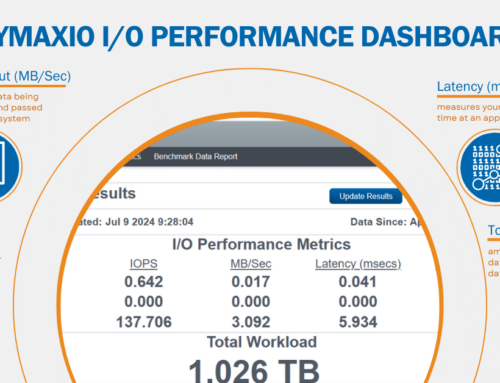The company that sold over 100 Million Diskeeper® licenses for hard disk drive systems, now releases SSDkeeper® to keep solid-state drive systems running longer while performing “faster than new.”
Every Windows PC or physical server fitted with a solid-state drive (SSD) suffers from very small, fractured writes and reads, which dampen optimal SSD performance and ultimately erodes the longevity of SSDs from write amplification issues. SSDkeeper’s patented software ensures large, clean contiguous writes and reads for more payload with every I/O operation, reduced Program/Erase (P/E) cycles that shorten SSD longevity, and boosts performance even further with its ability to cache hot reads within idle, available DRAM.
Solid-state drives can only handle a number of finite writes before failing. Every write kicks off P/E cycles that shorten SSD lifespan otherwise known as write amplification. By reducing the number of writes required for any given file or workload, SSDkeeper significantly boosts write performance speed while also reducing the number of P/E cycles that would have otherwise been executed. This enables individuals and organizations to reclaim the write speed of their SSD drives while ensuring the longest life possible.
Patented Write Optimization
SSDkeeper’s patented write optimization engine (IntelliWrite®) prevents excessively small, fragmented writes and reads that rob the performance and endurance of SSDs. SSDkeeper ensures large, clean contiguous writes from Windows, so maximum payload is carried with every I/O operation. By eliminating the “death by a thousand cuts” scenario of many, tiny writes and reads that slow system performance, the lifespan of an SSD is also extended due to reduction in write amplification issues that plague all SSD devices.
Patented Read Optimization
SSDkeeper electrifies Windows system performance further with an additional patented feature – dynamic memory caching (IntelliMemory®). By automatically using idle, available DRAM to serve hot reads, data is served from memory which is 12-15X faster than SSD and further reduces wear to the SSD device. The real genius in SSDkeeper’s DRAM caching engine is that nothing has to be allocated for cache. All caching occurs automatically. SSDkeeper dynamically uses only the memory that is available at any given moment and throttles according to the need of the application, so there is never an issue of resource contention or memory starvation. If a system is ever memory constrained at any point, SSDkeeper’s caching engine will back off entirely. However, systems with just 4GB of available DRAM commonly serve 50% of read traffic. It doesn’t take much available memory to have a big impact on performance.
Enhanced Reporting
If you ever wanted to know how much Windows inefficiencies were robbing system performance, SSDkeeper tracks time saved due to elimination of small, fragmented writes and time saved from every read request that is served from DRAM instead of being served from the underlying SSD. Users can leverage SSDkeeper’s built-in dashboard to see what percentage of all write requests are reduced by sequentializing otherwise small, fractured writes and what percentage of all read requests are cached from idle, available DRAM.
SSDkeeper is a lightweight file system driver that runs invisibly in the background with near-zero intrusion on system resources. All optimizations occur automatically in real-time.
While SSDkeeper provides the same core patented functionality and features as the latest Diskeeper 16 for hard disk drives (minus defragmentation functions for hard disk drives only), the benefit to a solid-state drive is different than to a hard disk drive. Hard disk drives do not suffer from write amplification that reduces longevity. By eliminating excessively small writes, IntelliWrite goes beyond improved write performance but extends endurance as well.
Available in Professional and Server Editions
- SSDkeeper Professional for Windows PCs with SSD drives greatly enhances the performance of corporate laptops and desktops.
- SSDkeeper Server speeds physical server system performance of the most I/O intensive applications such as MS-SQL Server by 2X to 10X depending on the amount of idle, unused memory.
- Options include Diskeeper Administrator management console to automate network deployment and management across hundreds or thousands of PCs or servers.
Diskeeper, V-locity, and SSDkeeper have been revolutionized into one new product – DymaxIO.




Yeah, I have the same question as the previous two people as there seems to be nothing specific in the feature set that is bespoke to SSDk vs DK16.
So it's not clear if it's simply a rebranding of DK16 into a 2nd product as a purely marketing exercise or, if not, where the material gain to one over the other is???
With systems having both HDD and SDD, is one Diskeeper app. appropriate??
I have DK16 on a computer with a mixture of HDDs and SSDs. Should I stay with DK16 or go over to SSDk?